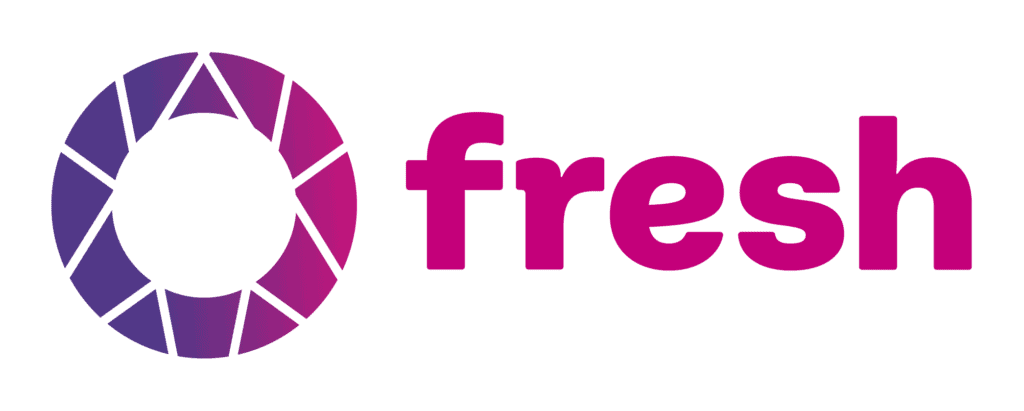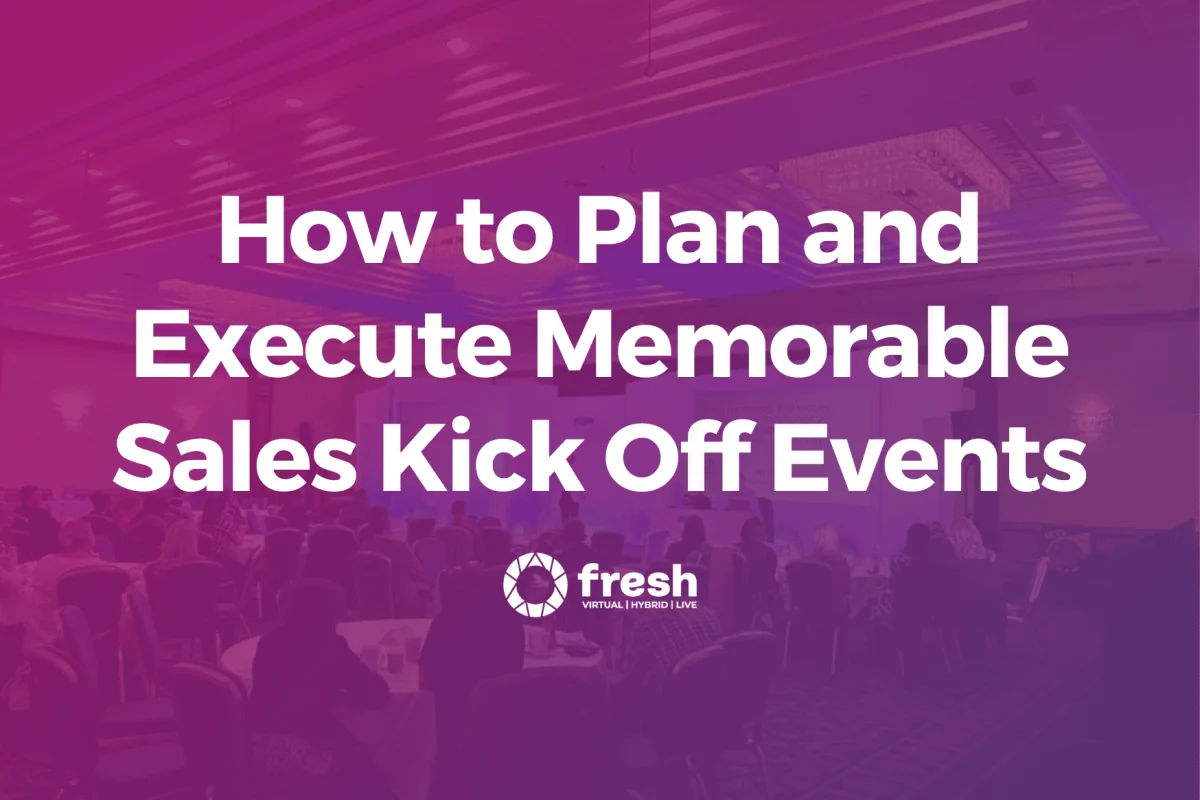“If you don’t know where you are going, you’ll end up someplace else.” This quote can be said when trying to plan events as we’ve all been or organised one where we think this isn’t working out or you wish a little more organisation had taken place. We’ve also had the opposite experience and created a great event due to planning. A sales kick off (SKO) is perhaps the most important event of the year for a sales organisation. It’s a time to celebrate wins and reward hard work. It’s a special occasion to re-energise and refresh your team. It’s an opportunity to train your team and introduce new themes and methodologies. But most importantly, the SKO is your moment to orient your sales team for the upcoming year. Yet creating an impactful SKO doesn’t happen by accident. Vigorous planning and meticulous organisation needs to take place to make sure your event isn’t just one big party or a dull lecture but a harmonious blend of the two. So how do you do that? We’ve got the tips you need on how to plan and execute a memorable SKO.
Sales kick off basics
What is a SKO?
A sales kick off is usually a multi-day company event that brings together the entire sales department to celebrate wins from the previous year and set the course for the coming year. Management and in some cases supporting teams like marketing, product, and customer service join the sales department to participate in a series of presentations, training sessions, and team activities.
Sales kick offs are often used to boost morale, grow your team’s skill sets, reinforce your company’s culture and align the whole team to your organisations goals. It’s also a great place to share news, achievements and strategies for the coming year.
When should you have your sales kick off?
These can occur annually, and many organisations have them just as their business year ends, whether your company follows the fiscal or calendar year. Yet some companies choose to host these when it’s a quieter period in the calendar or at the start of the new year so strategies and KPIs have been discussed. However, you can also choose to host them more frequently, particularly to correspond with certain projects or product launches.
Where should you have your SKO?
Traditionally sales kick offs have been hosted in person in event spaces near a company’s offices or have been held in large central cities. However, some organisations have even pushed the boat out and created destination events to add an element of fun and excitement. This also can double down as a way to reward your team!
Additionally, many organisations have switched to doing remote SKOs. However, in an age where remote and hybrid work have become so commonplace, hosting an in-person SKO may be more valuable than ever, as it provides team members who barely see each other outside of video calls with a rare chance for in-person interaction.
High-level SKO goals and expectations
One of the number one goals you should have is to make sure your event has a positive impact. Being motivational can be highly important as your SKO should be something that your employees look forward to each year and be an element that motivates them to do the best work they can do. Your team should leave feeling refreshed and re-energised for the upcoming sales period. You want them to be glad to be a part of the team and excited about the future, believing they’ve continued to make the right investment in staying with your company.
How to plan and prep for your sales kick off
Planning ahead will ensure that all your details and parts of your SKO are accounted for and organised. This could involve gathering input from relevant stakeholders, deciding on which elements to focus on, selecting a theme and outlining an agenda.
Assemble your team
Firstly, make sure you have a great team behind you to help put this event together. In house you may need to start by bringing in feedback and perspectives from a wide range of stakeholders well before you get into the specifics of the SKO itself.
Next, you may want to collaborate with marketing leadership and the sales team managers. The managers in particular are best suited to understand the issues sales teams are facing, their personal interests and preferences, and what it will take to craft an SKO that will motivate and drive them. Next make sure you have an event planner and team such as Fresh Productions to help bring your event to life.
Determine your “one big thing”
Now you have your team put together, you should next focus on what your team hope to learn from the sales kick off or what they would like to accomplish from the event. You may get a variety of responses such as focusing on increasing sales of a certain product, hitting targets more consistently, improve employee morale, or even compete with a specific competitor.
Once you have all the feedback you need, you can start working to distil it into a single overarching goal that can accommodate all the small specific goals that each stakeholder brought to the table. Then that “one big thing” can be what will direct the rest of your planning.
Decide on a SKO theme
Choosing a theme is an essential part of planning a sales kick off, but depending on where you look for advice, you’ll tend to find seemingly opposed directions you can head with it.
In one corner, you’ll find the serious straightforward business-centric sales kick off themes. These are things like beating a certain competitor, focusing on the customer, or collaborating with team members. And in the other corner, you’ll find light-hearted, playful, and less serious sales kick off themes that can sometimes seem better suited to parties than a corporate event, themes such as parody blockbuster films, popular game franchises, or television genres. So which kind of theme should you choose?
As always, it depends on the specifics of your organisation as well as your sales team’s interests and personalities. Look to the sales team managers in particular to determine what kinds of themes would resonate best or even speak to your event planner to work out what works for your company.
Most companies will try to blend the two creating a fun theme whilst remembering the important serious notes, however the most important part will be tying it directly to the “one big thing” you identified to drive the SKO.
Create a detailed SKO agenda
Make sure you plan your event accordingly, taking into consideration elements such as travel plans, attention spans and creating different elements so that your team don’t feel like they are sitting and listening to one large lecture throughout the whole event. Add in elements such as breakout training sessions focusing on a specific skill or sales strategy and fun team building exercises.
Finishing the event off with a dinner or party will also create an exciting buzz to your sales kick off, allowing your team to feel rewarded. This also allows your employees to let their hair down, you can put the ‘fun’ part of your theme to full use and recognises a positive company culture.
Best practices for your sales kick off
Stay focused on your singular objective
Remember that the most fundamental goal of a sales kick off is to make a positive impact on your sales team. And the best way to do that is by distilling everything you want to communicate into a single clear message for them to take away from the event that will motivate them for the coming sales period.
As mentioned, figuring out your “one big thing” early on in the planning process and incorporating it into everything you do such as the theme, the schedule and the training sessions for example, will help your event feel seamless.
Find the right balance between learning and fun
In a nutshell, a sales kick off is a corporate event that is intended to drive performance for your sales organisation but it should also be something enjoyable that sales reps look forward to throughout the year.
You don’t want to go too far in the direction of fun, such that you lose focus on your “one big thing” and turn the SKO into a party. But you do want to sprinkle enough fun throughout to keep your employees engaged. Keep it light-hearted, tie fun elements into learning activities, and break up the training sessions with a few recreational activities.
Avoid overpacking the schedule
Remember that less is more for a SKO. Stick to what you need to accomplish, and don’t try to fit in too many extra events just to fill the schedule. Make sure that event feels meaningful, whether the goal is learning or community building. Your employees won’t be retaining too much information if the schedule is too full packed. Also think about spacing out learning events, provide plenty of breaks and free time, and sprinkle in fun activities. You should be thinking about the minimal amount you can do for the maximum output.
Factor inclusivity into everything you plan
Employees from different backgrounds bring varying viewpoints to the table and enrich the team as a whole. But unfortunately, many sales kick offs fail to account for the diversity found in their sales teams. If you aren’t being intentional about inclusivity, then it can be easy for the ethos and activities of a SKO to cater toward a single perspective.
Take the time to think through the activities you plan, making sure that whatever you select will be applicable and accessible to everyone—or that you offer multiple options with something for everyone to enjoy.
Being intentional about inclusivity is one of the best things you can do to build a team that people love, where everyone feels welcome.
Plan to follow up on your SKO
Once the event is over, everyone has returned home, and business resumes as normal, you’ll want to intentionally follow up on your sales kick off to ensure your employees have retained what they learned and are putting their training into practice.
For example this could include a thank-you note sent out about a week after the SKO, reminding the team of the highlights from the event, reiterating the “one thing” you want them to take away, and expressing gratitude for their participation.
Additionally, you should coordinate with sales team managers to have them continue developing the theme from the SKO as they work with their team moving forward throughout the sales period.
In conclusion, a well-executed Sales Kick off can be the difference between a successful sales year and one that falls short. By putting in the time and effort to plan every detail—from choosing the right theme to balancing learning with fun—you can set up an event that not only energises your team but also aligns them with your company’s goals. Remember, a SKO isn’t just another corporate event; it’s a pivotal moment to inspire, educate, and unite your employees. So, take the time to plan it right, make it meaningful, and most importantly, ensure it leaves your team motivated and ready to conquer the year ahead.
Chat with our team today
Read More

You Need to Invest in AV for Your Next Event. Here’s Why.

Event Logistics Without the Headache: How to Keep It Fresh (Literally)

The Impact of AV Technology in Creating Immersive Event Experiences

Top Event Trends for 2025: AV, Logistics, and Videography

Mastering IT Channel Events: A Logistics Guide for Vendors


